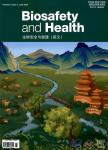Importance of Wolbachia-mediated biocontrol to reduce dengue in Bangladesh and other dengue-endemic developing countries
Importance of Wolbachia-mediated biocontrol to reduce dengue in Bangladesh and other dengue-endemic developing countries作者机构:Department of Genetic Engineering&BiotechnologyJashore University of Science and TechnologyJashore 7408Bangladesh Directorate General of Health ServicesGovernment of the People's Republic of Bangladesh Ministry of Health and Family WelfareDhaka 1212Bangladesh Center for Medical BiotechnologyGovernment of the People's Republic of Bangladesh Ministry of Health and Family WelfareDhaka 1212Bangladesh Department of Public Health and Hospital AdministrationNational Institute of Preventive and Social Medicine(NIPSOM)Dhaka 1212Bangladesh Department of EntomologyNational Institute of Preventive and Social Medicine(NIPSOM)Dhaka 1212Bangladesh Department of BiostatisticsNational Institute of Preventive and Social Medicine(NIPSOM)Dhaka 1212Bangladesh
出 版 物:《Biosafety and Health》 (生物安全与健康(英文))
年 卷 期:2023年第5卷第2期
页 面:69-77页
核心收录:
学科分类:1004[医学-公共卫生与预防医学(可授医学、理学学位)] 100401[医学-流行病与卫生统计学] 10[医学]
主 题:Wolbachia-based biocontrol Mosquitoes-borne diseases Dengue Biological control Developing countries
摘 要:Mosquito-borne diseases,particularly dengue and chikungunya have become global threats,infecting millions of people worldwide,including developing countries of Southeast Asia and Latin ***,like many other developing countries,is experiencing frequent dengue *** article,therefore,critically discussed the current status of dengue disease,vector control approaches,and the need for Wolbachia-mediated intervention in Bangladesh and other dengue-endemic developing *** this narrative review study,rel-evant literature was searched from major databases and search engines such as PubMed,BanglaJol,World Health Organization(WHO)/European Centre for Disease Prevention and Control(ECDC)and Google *** the selection criteria,our search strategies finally involved 55 related literature for further *** showed that current vector control strategies could not render protection for an extended period,and the disease burden of arboviruses is *** impoverished outbreak preparedness,urbanization,climate change,and less efficacy of existing control methods have made people susceptible to vector-borne ***,Wolbachia,a naturally occurring endosymbiont of many mosquito species that can potentially limit virus transmission through several host genetic alterations,would be a potential alterna-tive for dengue *** also critically discussed the challenges and prospects of Wolbachia-based den-gue control in developing *** evidence supporting the efficacy and safety of this intervention and its mechanism have also been *** evidence suggests that this introgression method could be an eco-friendly and long-lasting dengue control *** review would help the policymakers and health experts devise a scheme of Wolbachia-based dengue control that can control mosquito-borne diseases,partic-ularly dengue in Bangladesh and other developing countries.



